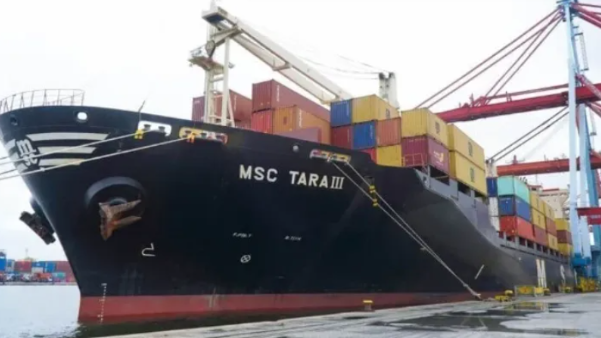Due to unstable tariff policies, trade between the world’s two largest economies has effectively come to a standstill. Container shipping companies are canceling voyages on a large scale—a scenario not seen even during the early stages of the COVID-19 outbreak five years ago. The outlook for global trade is grim, with a sharp increase in canceled trans-Pacific sailings in the coming weeks.
“Blank sailings” occur when shipping lines skip scheduled port calls due to low freight demand or equipment shortages, causing disruptions in supply chains. In April 2025, over 80 blank sailings were reported—significantly higher than the 51 recorded in May 2020—signaling a severe breakdown in global shipping activity.
Tracking these cancellations offers a useful alternative indicator for assessing how trade wars are affecting booking activity.
Sea-Intelligence’s Blank Sailing Tracker monitors the number of planned sailings canceled over a rolling 12-week period and the resulting capacity losses.
According to the latest weekly report described as “alarming,” data from Sea-Intelligence shows that in week 18 (next week), container demand on the Asia–U.S. West Coast route is expected to drop by 28%, and in week 19, demand on the Asia–U.S. East Coast route is forecast to fall by 42%.
“It’s clear that the trade war has led many shippers to pause or cancel cargo movements entirely. This, in turn, reduces demand for container vessel capacity, and carriers are responding by canceling sailings,” the consulting firm noted.
Judah Levine, head of research at Freightos, commented: “The need to blank sailings from China and potentially add services from other origins presents a logistical challenge for ocean carriers and could lead to delays for shipowners. The accumulation of empty containers in China will also become a serious issue. For smaller shipping lines focused on specific markets, the trade war is particularly devastating,” Sea-Intelligence warned in an earlier report. “Most of these carriers rely heavily on Chinese cargo, and a sudden shift to alternative sourcing isn’t easy. Some of them may go out of business entirely during the trade war.”

Last
Spike in Piracy Incidents Alarms Southeast Asia Maritime Community
Piracy Incidents Persist in Singapore Strait as MSC and Panama-Flagged Ships BoardedA recent surge in robbery incidents continues

Next
Volvo Trucks Cuts 350 More Jobs in Virginia Amid Tariff and Market Pressures
Recently, approximately 350 more workers were laid off at Volvo Trucks’ factory in Virginia, as the company continues to reduce it



